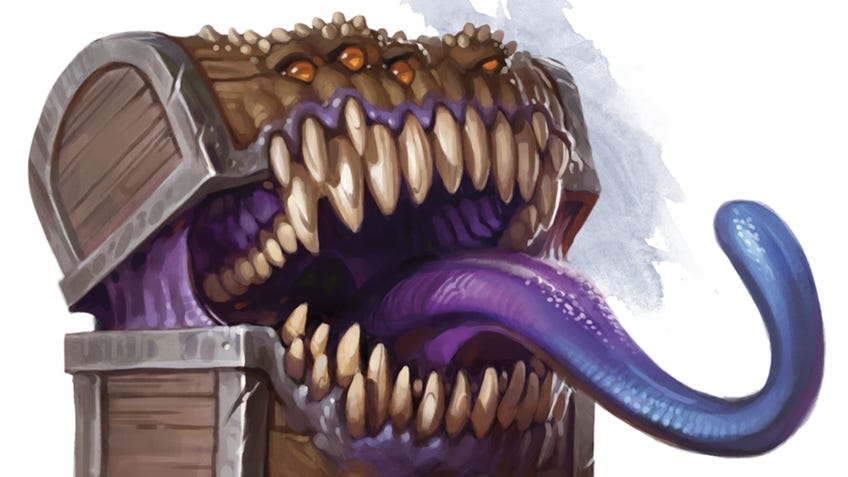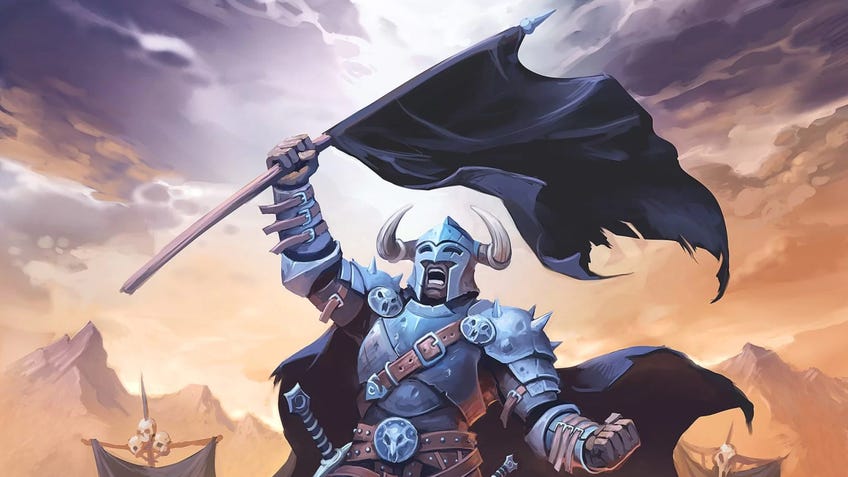Project Black Flag’s first crack at a D&D replacement is more retread than reinvention
Kobold Press’ post-OGL efforts feel trapped underneath the shadow of tabletop’s maligned monolith.
Tabletop RPG publisher Kobold Press released the first playtest document for Project Black Flag, its attempt to replace Dungeons & Dragons’ currently tainted presence from 5th Edition-derived material. The preliminary effort cleaves a hair’s breadth from D&D, squandering the creative freedom to imagine a progressive future for the popular tabletop RPG.
Kobold Press, maker of supplements, adventures and other resources for 5E roleplay, announced Project Black Flag within a week of a leaked Wizards of the Coast document proposing controversial updates to the publisher’s Open Gaming Licence (OGL). It would be their own ruleset, a life raft for future sourcebooks regardless of what happens to D&D. The company described it as a plan “to revise and sharpen familiar mechanics while offering new, streamlined options for a core tabletop game.”
On February 13th, Kobold Press published its first playtest packet, which details proposed changes and updates to multiple character creation mechanics, specifically lineage and heritage - its surrogate for ‘race’ and ‘subrace’ in the currently published D&D rules - along with backgrounds and talents. The document, which freely alternates between the vaguely placeholder-sounding titles “[Core Fantasy Roleplaying]” and “[Core Fantasy System”], will be available until February 27th, and readers can submit feedback on Kobold Press’ website until February 28th.
You would be excused for mistaking the playtest document’s contents for the contents of the D&D 5E Player’s Handbook on first blush. Its first pages takes the time to enshrine the standard array of polyhedral dice as necessary tools and describes character class progression in the extremely familiar terms of experience points (or milestones, if you’re spicy) spanning from levels 1 to 20. There are hit points, hit dice for recovery, six ability scores and their respective modifiers and proficiency bonuses. So far, no surprises.
Lineages and heritages show the largest changes to the established formula, but even this section trucks heavily in traditional fantasy roleplay language. It describes dwarves, elves and humans - the three included lineages - in bog-standard, Tolkienesque language: dwarves are short mountain dwellers with an ancestral culture; elves are willowy, ethereal and preoccupied with magic; humans showcase a “innate tenacity and adaptability” along with cultures far more varied than their fantastical counterparts’ rather narrow depiction.
The document advises players that they can mix and match the two heritages included underneath each lineage to suit their bespoke character, allowing for a dwarf raised amongst towering cloud spires or a human steeped in the metalcraft traditions of fire dwarves. But these are presented as alternatives - non-standard options. Kobold Press is expressing real borders on the intended experience and only then admitting that it’s possible to play outside their fences.

It’s not exactly a surprise that Project Black Flag’s design feels like a slightly different coat of paint on an old, familiar chassis - backgrounds function identically to D&D and the proposed talent mechanic is just a level 1 feat for all characters. The publisher said as much last month when they explained their mission in a blog post on their website: “Project Black Flag will embrace 5E and expand upon it. Our goal is to keep 5E products vibrant and available in print and on our VTT partner platforms. Project Black Flag is one step in making this a reality.”
The tabletop space currently exists at an inflection point where many publishers and creators, such as Kobold Press, have the opportunity to expand the popular perception of roleplay. Instead of a slavish recreation of D&D’s time-weathered edifices, Project Black Flag could cast fantasy’s bag of tropes under a fresh spotlight. Why not break out heritages into their own extant category, the same as backgrounds, allowing specific groups to define what dwarven/elven/human culture means to their table?
What is gained by simply scrubbing Dungeons & Dragons’ fingerprints off the same set of play assumptions most people have been using since 2015 and only fixing outmoded trends Wizards of the Coast has already announced? That game will continue to exist, and I’d personally love to see the public animus against tabletop’s looming, corporate shadow amount to more than a dozen reinvented wheels spinning uselessly in the shade.

